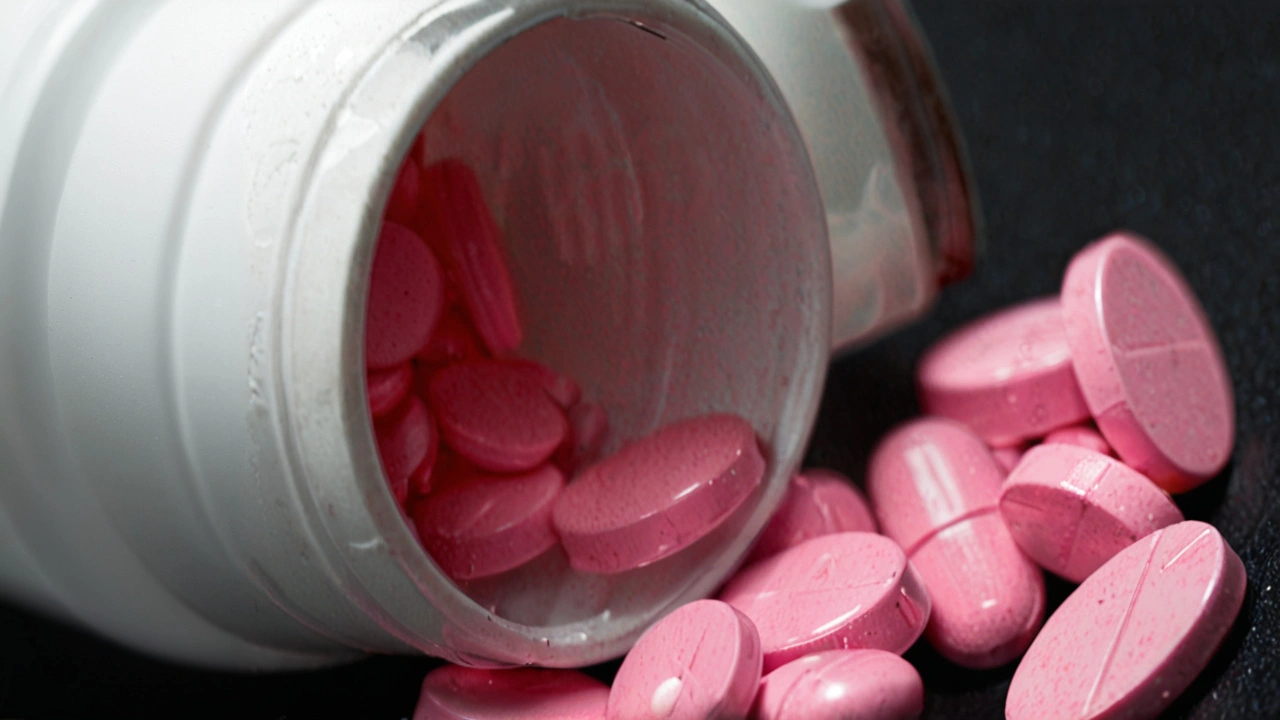Antidepressants: what to expect and how to use them safely
Most people expect a pill to fix mood fast. Antidepressants usually don’t work like that — they often need time and patience. If you’re reading this because you or someone you love is starting medication, this page gives clear, practical info: what each drug class does, common side effects, and simple safety tips you can use right away.
How antidepressants work and the main types
Antidepressants change brain chemicals that affect mood, sleep, and appetite. The most common groups are:
- SSRIs (selective serotonin reuptake inhibitors): sertraline, fluoxetine, escitalopram. Often first choice because they’re effective and generally well tolerated.
- SNRIs (serotonin–norepinephrine reuptake inhibitors): venlafaxine, duloxetine. Useful when anxiety and pain coexist with depression.
- Atypical antidepressants: bupropion (works well for low energy, less sexual side effects), mirtazapine (can help sleep and appetite).
- TCAs (tricyclics) and MAOIs (monoamine oxidase inhibitors): older drugs that work but have more side effects and stricter interaction rules. MAOIs require specific dietary limits and must not be mixed with many meds.
What to expect: timeline, side effects, and risks
Most people start to notice small improvements in 2–4 weeks and clearer improvement by 6–8 weeks. If there’s no change after about two months, talk to your prescriber — dose changes or a different drug may help.
Common side effects depend on the drug but include nausea, headache, dry mouth, drowsiness, insomnia, or sexual side effects. Many of these fade after a couple of weeks. Bupropion tends to have less sexual dysfunction but can raise anxiety in some people.
Watch for serious signs: sudden worsening mood, new suicidal thoughts (especially in people under 25), high fever, fast heartbeat, severe muscle stiffness, or confusion — these could indicate serotonin syndrome or worsening depression. Seek medical help right away if any of these occur.
Drug interactions matter. Don’t mix MAOIs with SSRIs or SNRIs. Tell your doctor about other meds (including herbal supplements like St. John's wort), blood thinners, and migraine drugs (triptans). Also mention alcohol use — heavy drinking can make meds less effective and increase risks.
Few final practical tips: take the pill at the same time every day, try not to skip doses, and don’t stop suddenly — taper under medical guidance. Keep a simple symptom diary for two months so you can show what changed. Combining medication with therapy, sleep hygiene, and regular activity usually gives better results than medication alone.
If cost or access is a concern, ask your provider about generic options, patient assistance programs, or pharmacists who can suggest cheaper equivalents. And if you ever feel unsafe or have new harmful thoughts, contact emergency services or a crisis line immediately. Antidepressants help a lot of people, but safe use and good follow-up make the real difference.
New Research Questions Antidepressant Efficacy for Mild Depression: Alternative Treatments Highlighted
A recent study in JAMA suggests antidepressants may offer minimal benefits for mild depression compared to their side effects. The data from six clinical trials involving over 2,000 patients revealed the need for alternative treatments like psychotherapy and lifestyle changes, challenging current prescription practices.

